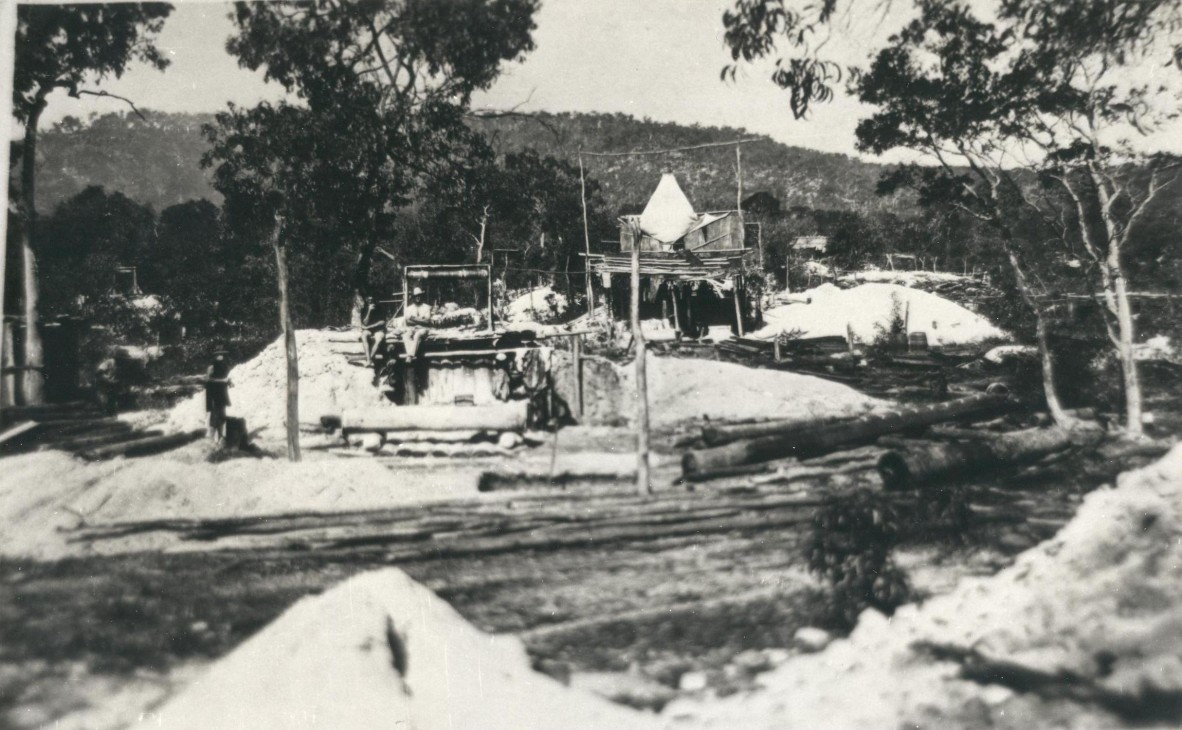The Wenlock Goldfield, formerly known as the Batavia Goldfield, was officially proclaimed in 1892 following the discovery of gold by William Baird at Retreat Creek, a tributary of the Wenlock River.
The initial yields were high with output in 1893-4 being around two thousand ounces. As other nearby sources of gold were discovered the field moved and expanded and other settlements were established, including Bairdsville, Top Camp, Lower Camp or Plutoville, all mainly supplied from Coen. The Lower Camp settlement eventually evolved into the settlement of Wenlock, becoming the main township in the area by the 1930s. It was officially named Wenlock in 1938.
Gold output varied from place to place, encouraging miners and prospectors to move from field to field in search of higher yields. The Batavia, later Wenlock, field was to be the most productive goldfield in Cape York during the Great Depression, with six payable mines in operation. During the Second World War, the Australian Army dismantled and removed significant quantities of equipment and infrastructure from the mines and mills of the Wenlock Field, with the aim of preventing the mines being used by the Japanese in the event of an invasion.
Following the Second World War the Wenlock Field was still to prove productive however on-going challenges such as devastating flooding and an on-going lack of investment had resulted in a decline in production, although some prospecting as well as mining operations continue. Some of the more well known mines that have operated in the area have included the Golden Gate, Reform, Black Cat Amalgamated, Golden Casket, Black and White and the Zamitt mines.

Comments
Your email address will not be published.
We welcome relevant, respectful comments.